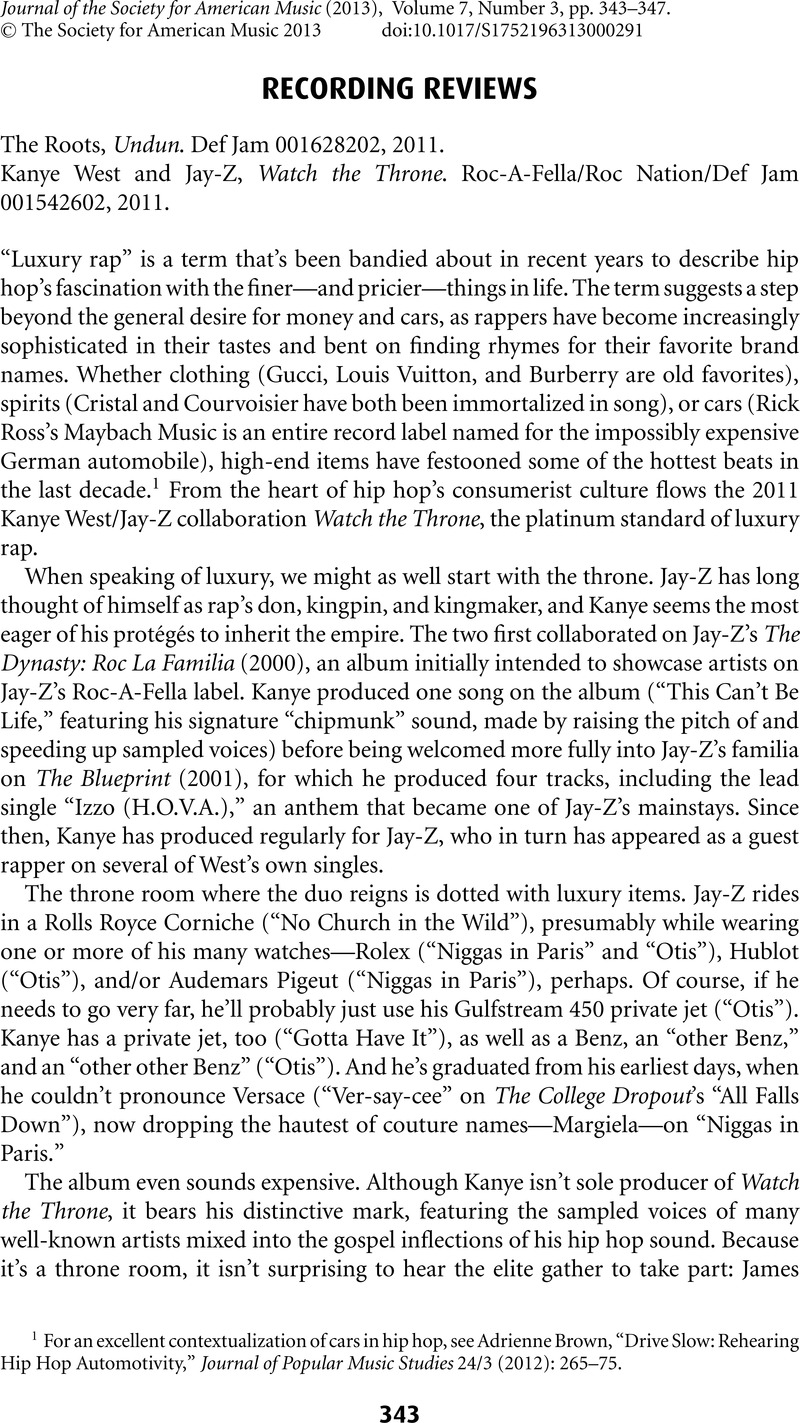No CrossRef data available.
Published online by Cambridge University Press: 08 August 2013

1 For an excellent contextualization of cars in hip hop, see Brown, Adrienne, “Drive Slow: Rehearing Hip Hop Automotivity,” Journal of Popular Music Studies 24/3 (2012): 265–75CrossRefGoogle Scholar.
2 Joanna Demers discusses the changing nature of hip hop sampling over the last two decades in the “Duplication” chapter of Steal This Music: How Intellectual Property Affects Musical Creativity (Athens: University of Georgia Press, 2006). Schloss's, JosephMaking Beats: The Art of Sample-Based Hip-Hop (Middletown, CT: Wesleyan University Press, 2004)Google Scholar is an important contribution to the understanding of the technique as well.
3 The title of the song “Niggas in Paris” itself carries potential connections to the history of black intellectuals and artists who have expressed greater acceptance in Europe—especially Paris.
4 Jennifer Ryan explores the benefits and stigmas of being a house band in “‘Beale Street Blues?’ Tourism, Musical Labor, and the Fetishization of Poverty in Blues Discourse,” Ethnomusicology 55/3 (2011): 473–503. Ryan's study focuses on the blues, but her conclusions warrant extrapolation to other genres, especially one as closely related to the blues as hip hop. The desire of musical tourists to hear impoverished musicians is directly related to the problems of luxury, race, and poverty explored in Watch the Throne and Undun.